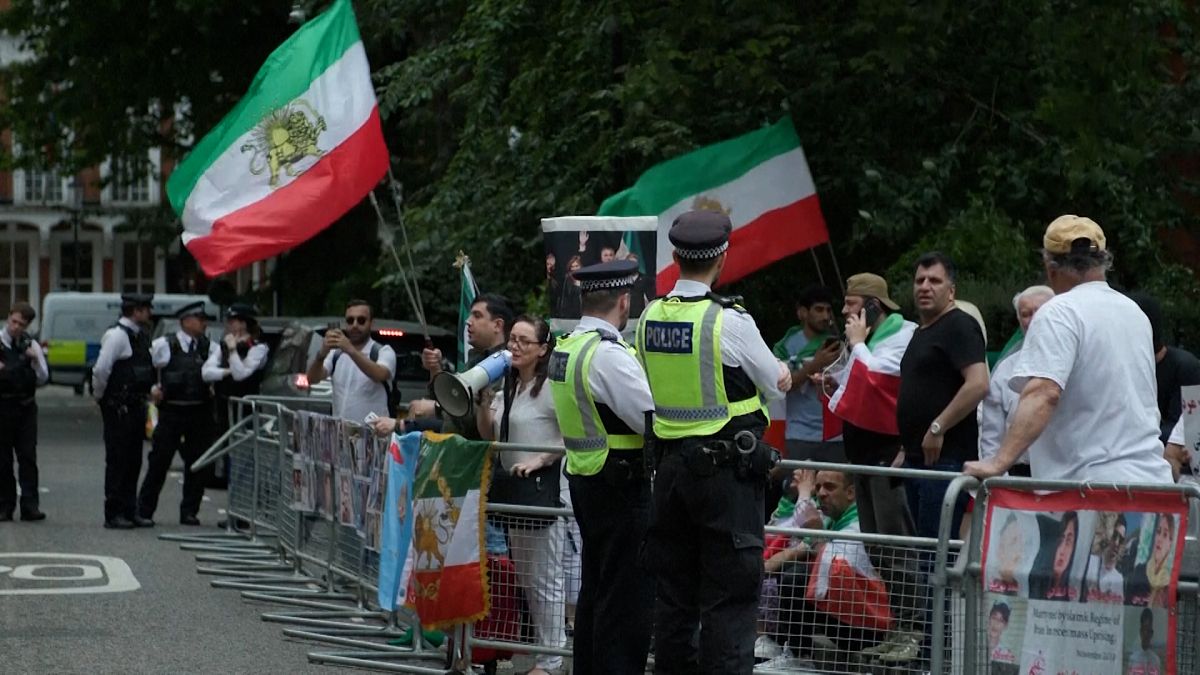In a recent protest outside the Iranian consulate, dozens of demonstrators were seen waving Iranian flags, chanting slogans like “women, life, freedom,” and booing voters entering the consulate. This comes in the wake of record-low turnout in recent elections, sparking uncertainty about voter participation in the country. While the Supreme Leader holds ultimate authority in Iran, the president still plays a crucial role in shaping the country’s approach to the West.
The protest outside the Iranian consulate highlights the growing unrest among the population, with demands for greater rights and freedoms for women. The chanting of slogans like “women, life, freedom” reflects a desire for progress and change in the country. This comes at a time when voter turnout in elections has been declining, indicating a growing dissatisfaction with the current political landscape. The presence of protesters outside the consulate could signal a shift towards more active forms of dissent among the Iranian population.
Despite the Supreme Leader’s ultimate authority in Iran, the president still wields significant influence over the country’s foreign policy, especially in its approach to the West. The president plays a key role in representing Iran on the international stage, shaping its relationships with other countries, and influencing its stance on key issues. As such, the outcome of the upcoming elections could have far-reaching implications for Iran’s foreign relations and overall geopolitical position.
The recent protest outside the Iranian consulate also sheds light on the complexities of Iran’s political landscape, where power is shared between various branches of government. While the Supreme Leader holds ultimate authority, the president is responsible for executing policies and representing the country on the global stage. This delicate balance of power between different branches of government can impact Iran’s approach to key issues, including its relations with the West.
The protest outside the Iranian consulate serves as a reminder of the ongoing struggles for greater rights and freedoms in the country. Calls for “women, life, freedom” highlight the desire for progress and change among the Iranian population, especially in terms of gender equality and human rights. The protest also underscores the importance of civic engagement and activism in shaping the country’s political future, as citizens seek to hold their leaders accountable and push for meaningful reforms.
In conclusion, the protest outside the Iranian consulate reflects the growing discontent and desire for change among the Iranian population. As voter participation remains uncertain following record-low turnout in recent elections, the role of the president in shaping the country’s approach to the West becomes increasingly crucial. The protest serves as a poignant reminder of the ongoing struggles for greater rights and freedoms in Iran, highlighting the importance of civic engagement and activism in driving meaningful change.











